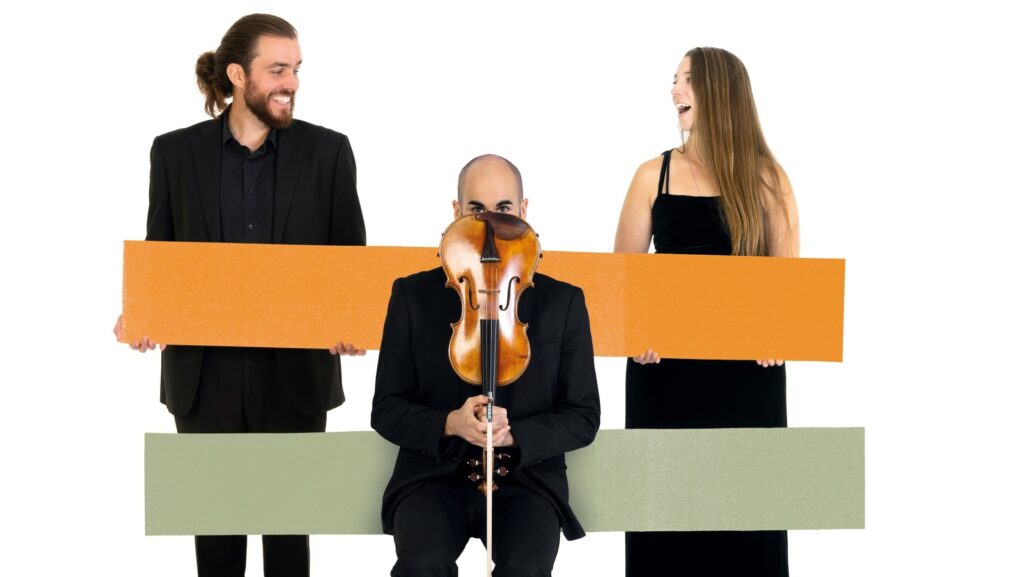WRITTEN BY Harry Martin | March 5, 2024

For over 130 years, the Bournemouth Symphony Orchestra, or the BSO, has stood as a venerable institution in the UK’s musical landscape, charting a captivating journey from its modest origins to becoming a globally acclaimed symphony orchestra.
Now that they’re back, let’s delve into the past, and discover how they went on to become the famous orchestra that we all love and know.
Inception to 1934: The Godfrey Era
Established in 1893 by the visionary conductor Dan Godfrey, the BSO began as a modest ensemble of 30 wind players and a drummer, evolving into a versatile group that could seamlessly shift between military band and classical orchestra performances. The orchestra garnered renown for championing British composers such as Elgar, Holst, and Vaughan Williams, while also introducing the UK to the works of Strauss, Saint-Saëns, and Tchaikovsky.
Under Godfrey’s baton, the BSO became the first permanent fully salaried municipal orchestra in the country. It weathered the challenges of World War I, celebrated its 25th anniversary in 1918, ventured to London in 1911, and even released its inaugural record in 1914. The opening of the Bournemouth Pavilion in 1929 marked a significant milestone, and in 1934, Godfrey concluded his tenure after conducting over 2,000 symphony concerts.
1934 to 1979: The International Recognition
Following Godfrey’s retirement, the Bournemouth Symphony Orchestra underwent significant shifts in leadership and direction. Richard Austin, who succeeded Godfrey as principal conductor, confronted financial challenges and dwindling support from the local council, leading to his resignation in 1939.
Montague Birch assumed leadership during World War II and guided the Bournemouth orchestra through tumultuous times, as they continued to perform in unconventional settings such as air-raid shelters and factories. He was also responsible for expanding the orchestra’s reach, through regular broadcasting on the BBC.
In 1947, Rudolf Schwarz became the principal conductor, injecting a fresh artistic vision. He diversified the repertoire with modern and contemporary works by Bartók, Stravinsky, and Schoenberg, and elevated the orchestra’s standards and discipline, attracting renowned guest soloists and conductors like Yehudi Menuhin, Jacqueline du Pré, and John Barbirolli.
After his departure in 1951, he was succeeded by Charles Groves, who continued expanding the orchestra’s horizons and popularity.
In 1962, Constantin Silvestri assumed the role of principal conductor, propelling the Bournemouth orchestra to international recognition. Silvestri led a joint performance with the Leipzig Gewandhaus Orchestra in East Germany, which was broadcasted live on both sides of the Iron Curtain. His acclaimed recordings, including the complete symphonies of Brahms and Tchaikovsky, contributed to the orchestra’s global standing.
In 1968, The Bournemouth Sinfonietta was founded, which was an offshoot of the Bournemouth Symphony Orchestra. It performed classical and contemporary music in various venues across the south and west of England, as well as touring abroad and collaborating with other artists and groups. It eventually disbanded in 1999.
Paavo Berglund’s tenure, from 1972-1979, included notable commercial recordings, such as Jean Sibelius’s complete symphonies for EMI, and the world premiere recording of Jean Sibelius’s Kullervo Symphony.
1979 to Present: The Renaissance and Beyond
In the 1980s and 1990s, the Bournemouth Symphony Orchestra underwent a revival, led by conductors Andrew Litton and Yakov Kreizberg. They restored the orchestra to its full symphonic size, expanded concert series to new venues, and garnered acclaim through extensive recordings, winning awards for performances of Sibelius, Shostakovich, Prokofiev, and others.
Although there were various conductors through this time, the most significant and historic was Marin Alsop, the BSO’s first female principal conductor, who led from 2002-2008. She championed contemporary music, commissioned works, and initiated projects like BSO Blast.
In the 21st century, conductors David Hill and Marta Gardolińska also contributed to the BSO’s continued success, where the orchestra remains as vibrant and versatile as ever, engaging in educational programs like BSO Participate. In 2018, BSO Resound, the world’s first professional disabled-led ensemble, debuted at the BBC Proms.
Celebrating its 130th anniversary in 2023, the BSO stands as one of the UK’s foremost orchestras, with a repertoire spanning classical to contemporary. The vision for diversity and innovation propels the orchestra forward, led by Kirill Karabits, who aspires to elevate the Bournemouth orchestra to global acclaim.
Present and Future: A Symphony of Diversity and Innovation
Today, the BSO stands as one of the UK’s most vibrant and versatile orchestras. Embracing a repertoire that spans classical to contemporary, the orchestra is committed to fostering diversity and innovation.
If this glimpse into the captivating journey of the Bournemouth Symphony Orchestra has piqued your interest, make sure to book your tickets for the BSO: Classic FM Hall of Fame event, on Friday 19th April 2024 at 7:30pm, at the Great Hall in Exeter. You can book your tickets, here.
OUR VENUES





